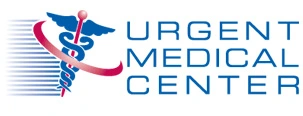 The Importance of a Regular and Complete Physical Exam
The Importance of a Regular and Complete Physical Exam
How Often Should I Get a Physical Exam? Why do I need a complete physical exam? And, what can I expect to happen at my physical exam? Medical physical exams are extremely important and save lives everyday. It’s true that prevention is always key, medical technology has come a long way, allowing doctors to pinpoint and treat many diseases before they turn terminal. For instance, if you wait too long to have a lump checked out, instead of a small scar you might be faced instead with a full-blown disease. A regular and complete physical exam will make sure you are not currently sick and they will also assess your future risk for health problems based upon lifestyle, family history, and current body signs. If there is a certain immunization you should receive, or maintenance checks you should adhere, a doctor is the only one who can tell you. By regularly skipping your annual doctor appointments you could be putting yourself at a much higher risk.
What to Expect At Your Medical Physical Exam
A complete physical exam is one of the easiest procedures for patients. You won’t be placed in any uncomfortable situations or have to go through any painful tests; this is simply a check up. A time for a certified doctor to take a look at your vitals, gather the facts, and then evaluate your current health. Your doctor will also address ways to improve your health so that you live a long and happy life.
There are certain vital signs your doctor will check during every physical.
These include:
- Blood pressure check, a reading higher than 140/90 is considered high blood pressure, or
Hypertension - 120/80 is considered to be normal blood pressure reading.
- Temperature reading with a thermometer, anything near 98.6 is considered normal.
- Respiratory rate check, the number of times you inhale and exhale per minute can be very telling, taking over 20 breaths per minute can be a worrisome sign that warrants further medical examination.
- Heart and lung exam, a stethoscope listens to your lungs and heart for healthy function. If you have an irregular heartbeat or questionable wheezes in your breathing, a doctor will be able to conduct a reasonable plan of action.
Learn More about High-Blood Pressure Physicals HERE
How Often Do I Need to Have A Physical?
That’s a big question with a lot of answers. Age is among one of the many variables that help determine how often you need to visit your doctor. If you have a family history of illness, have a previous or existing medical condition, you will want to visit your doctor more often. Although, there are still certain tests, like pap-smears or STD testing, recommended annually for all adults, especially if one is sexually active.
The older you get the more often you will need to visit your doctor, as your risk for disease increases and certain tests become recommended annually. For instance, at 50 years of age all adults should start having a yearly screening for colorectal cancer, and women 30 years and older should receive regular mammograms to help screen for breast cancer. No two people are exactly the same; the best way to know how often you should be seeing your doctor is by coming in for a visit.
Sometimes a complete physical exam is not recommended but required, say for instance if you start a new job, or when your child starts school or goes away to camp. There are many more reasons that a complete physical exam might be required, such as immigration exams, or for eligibility to play on a sports team. Use these requirements to your benefit; if you visit your doctor often for checkups you are less likely to develop an incurable illness or disease. After all, most illnesses are treatable if identified in the earliest stages.





